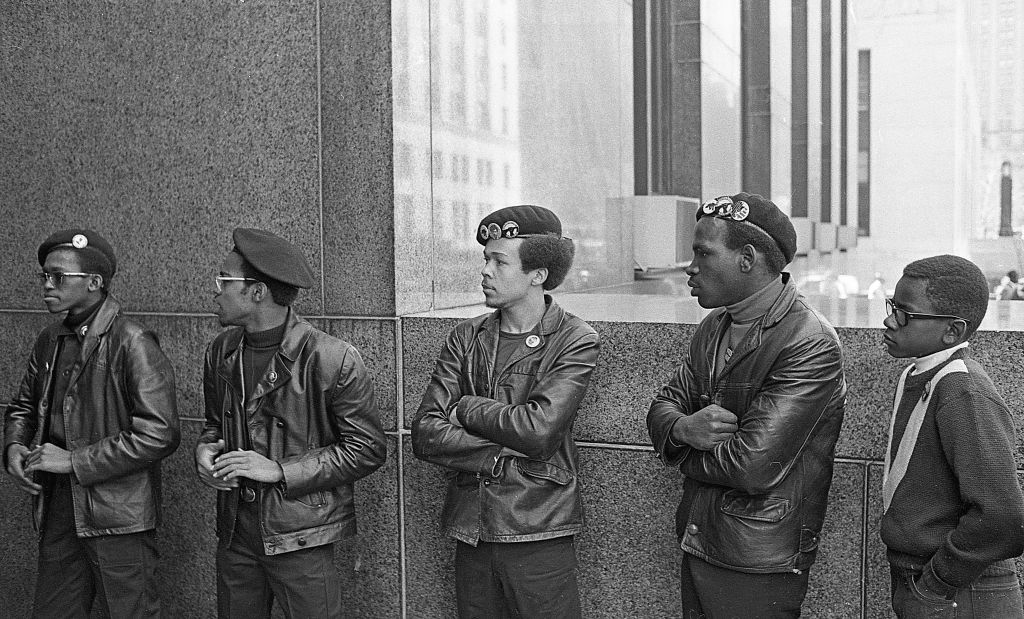Black August Is More Than History—It's A Mandate For Action
Op-Ed: Black August Is More Than History—It’s A Mandate For Action

This is Black August, and we ought to do something to further the Black radical tradition. While it is easy to bemoan the plight of our nation or self-soothe by over-indexing on entertainment, we should channel the determination and conviction of our ancestors.
More than the last exhale of summer, August figures prominently in the Black experience.
Originating in the 1970s, Black August honors the life and legacy of George Jackson. Jackson was assassinated during a prison uprising at San Quentin Prison on Aug. 21, 1971. His death ignited the prison abolition movement.
Decades later, generations of social justice advocates pause in August to remember Jackson and other political prisoners. Black August is an opportunity to honor the Black radical tradition.
As significant as the month is, I’m not sure there is a full appreciation for its significance among the broader society. There have been several defining moments in the month of August, however. Traffickers brought one of the first enslaved Africans to America on Aug. 20, 1619. The Haitian Revolution occurred on Aug. 14, 1791, resulting in Haiti becoming the first Black Republic in the world. Nat Turner’s rebellion occurred in August of 1831.
On Aug. 28, 1955, at the age of 14, Emmitt Till was killed by a vicious white mob. On Aug. 29, 1961, Bob Moses, who led the Student Nonviolent Coordinating Committee, was brutally attacked while registering Black people to vote in Mississippi.
The March on Washington (and the Rev. Dr. Martin Luther King’s “I Have a Dream Speech”) occurred on Aug. 28, 1963. Two years later, after Bloody Sunday, which occurred on March 7, the Voting Rights Act was signed into law on Aug. 6, 1965. It came not via the goodwill of President Lyndon Baines Johnson, but after years of Black resistance, racial terror lynchings, and violence.
There have also been a host of Black luminaries who were born or died in August, such as James Baldwin, Eldridge Cleaver, Fred Hampton, and T.J. Jemison. Black August, then, is both a moment of remembrance and a call for activation.

In the spirit of Black August, one can’t help but think of the Black Panther Party as well. I believe that they provided a roadmap for Black organizers today. They understood that poverty contributed to poor health. Before we knew the term “social determinants of health,” the Black Panther Party was working to address it. Their Free Breakfast for Children program fed more than 20,000 children. They opened schools and offered courses on economics, self-defense, and first aid. They escorted seniors to medical appointments and even distributed clothes to children and families in need.
In addition to feeding and clothing Black children, they operated over a dozen clinics in communities across the country where they screened Black people for sickle cell anemia and many other health issues. Many historians will focus singularly on their militancy, but underemphasize their humanitarian work.
More than anything else, the Black Panther Party taught us that our communities do not have to wait for goodwill that may never come; we can come together and do for self.
My organization, the Black Church Food Security Network, aims to walk in the same Black communal self-determinism tradition. For instance, our response to food insecurity is to support Black farmers, encourage Black churches to start and grow food on land that they own, and connect Black churches with Black farms for bulk/wholesale purchasing. Few things right now are more revolutionary than Black people working together to grow our own food and patronize Black farmers.
As impactful as their work was, the Black Panther Party paid a hefty price for their advocacy. Many were killed, jailed or exiled. Now, in the sunset of their lives, several languish behind bars. Black August, then, is an opportunity to urge the release of all remaining Black political prisoners, such as Mumia Abu-Jamal.
In light of this history, those of us who would put our hands to the plough and continue the work of these dreamers and dream keepers, must never surrender our hope.
Black August is a rallying cry to return to our roots, embracing the kind of disciplined activism and organizing that is informed by what our communities actually need. To do this, we need a revival of the principles and praxis that helped our Ancestors and elders before us.
This month, more than any other, we owe our Ancestors a renewed commitment to continue what they began. That’s because the fight for civil rights, equity and Black Power never ends; it evolves but it does not end. Therefore, progress demands something from you and from me.
This moment is not only an opportunity; it is a mandate. Happy Black August to those ready to further the work.
Rev. Dr. Heber Brown III is the founder and director of the Black Church Food Security Network.
SEE ALSO:
Huey Newton And Bobby Seale Founded The Black Panther Party On This Day In 1966
Black August Lesson: ‘Denim Is Interwoven With Stories Of Struggle And Resistance’
Op-Ed: Black August Is More Than History—It’s A Mandate For Action was originally published on newsone.com















